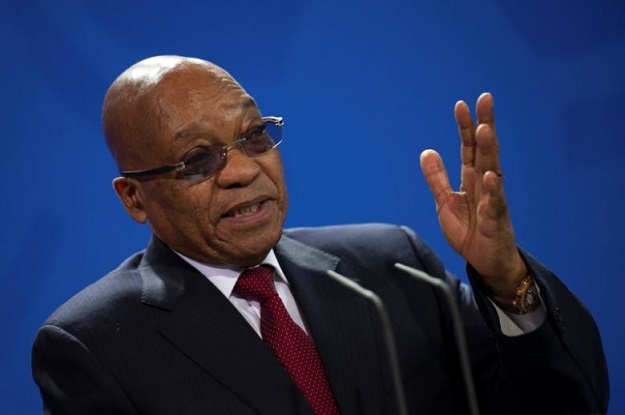
Since 1994, the African National Congress -- once led by Nelson Mandela -- has comfortably swept to victory in elections, and remains the largest party in the country.
But in last month's municipal elections, the loss of control of the capital city Pretoria, economic hub Johannesburg and port city Port Elizabeth point to the party's new fragility.
"The ANC is being consumed by three demons -- corruption, factionalism and a leadership without credibility," Prince Mashele, analyst and co-author of "The Fall of the ANC: What Next?", told AFP.
The party has always bred factions and divisions, but its dismal showing during the August 3 local elections has brought tensions to the surface.
On Monday, activists from rival party factions scuffled in downtown Johannesburg as anti-Zuma members threatened to occupy the party's headquarters.
"This is certainly the first time it has come to the fore in such a widely expressed way," said Mari Harris, an analyst and director of Ipsos pollsters in South Africa.
South Africa's Zuma in Iran praises 1979 revolution
Despite the increasingly vocal calls for Zuma to step down, many experts caution that he retains a strong grip on the party's power structure and draws loyalty from his extensive patronage network.
"There are two extremes within the party -- pro and anti Zuma -- but in between there are other people who tolerate the president for now," said Harris.
The party is due to choose a new leader at the end of next year, with the selected name then running as president in national elections in 2019 when Zuma cannot stand for a third term in office.
"What we are witnessing now is not the end, it's part of a downward spiral to the bottom," said Mashele.
"The bottom eventually will be when the ANC is totally removed from power and we are not yet there."
Several analysts forecast support for the ANC -- the celebrated party that freed the country from apartheid -- dipping below 50 percent in the 2019 election.
Public frustration has grown over its failure to tackle the country's modern problems of soaring unemployment, low growth and little real change for many of the poorest since the end of white-minority rule.
"President Jacob Zuma is an embodiment of all (the) wrong things in (the) ANC. Let's not be intimidated," said Ronald Lamola, a former youth leader in the party.
Zuma, 74, who under apartheid was jailed on Robben Island with Mandela, has been dogged by a litany of scandals, including being found guilty of violating the constitution after he refused to repay taxpayers money used to refurbish his private rural house.
Racism row over South African school's hair policy
One explosive tug-of-war being fought within the ANC is over Finance Minister Pravin Gordhan.
Gordhan, who for months has been targeted by a special police investigating unit, represents a faction seen as standing up against Zuma's corrupt associates.
"He is standing at the door of the treasury, which is where the money is. (Attempts to remove him) are so that the thieves can enter unhindered," said Mashele.
Long-term political allies of the ANC are also starting to push for change.
The Communist Party has been a trusted partner for more than two decades, but last month it accused the ANC leadership of being "arrogant and aloof".
The turmoil is working to the advantage of opposition parties, including the radical leftist Economic Freedom Fighters, formed three years ago by former ANC youth leader Julius Malema.
The ANC is conducting itself "so badly that the opposition actually looked good," said Harris.

















COMMENTS
Comments are moderated and generally will be posted if they are on-topic and not abusive.
For more information, please see our Comments FAQ